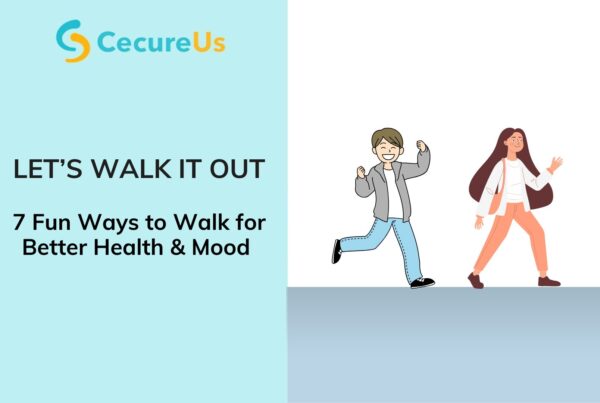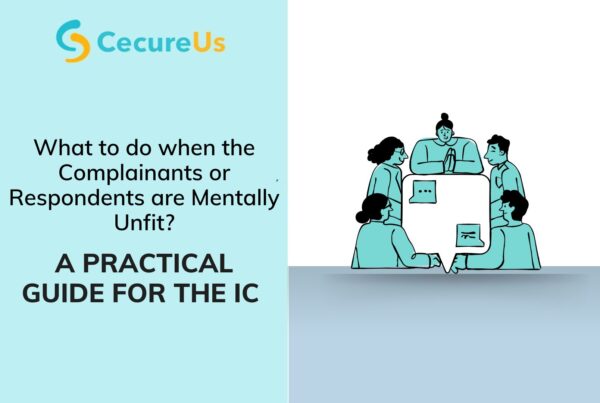The Protection of Children from Sexual Offences Act (POCSO), 2012, strengthens the legal provisions to safeguard our children from sexual abuse and exploitation from any person, male or female, paedophile or otherwise. It shields all children under 18 years from offences like sexual assault, sexual harassment, and pornography in schools, educational institutions, and other places.
Like the PoSH Act for the protection of women in workplaces, the POCSO Act offers protection for children. It guarantees stringent punishments graded as per the gravity of the offence. The Indian Penal Code (IPC) does not differentiate between an adult person and child victim, whereas the POCSO Act deals specifically with sexual crimes committed against children. The POCSO Act penalises sexual crimes committed against both male and female child victims, whereas the IPC does not consider rape committed on a male child.
It is essential that every person in the management board and staff in schools, educational, and other institutions understand their roles and responsibilities well, in reference to the provisions under the POCSO Act, 2012, to comply with its requirements.
In 90% of child sexual abuse cases, the child knows and trusts the person who sexually abuses them.
Definition of Child Sexual Abuse:
Sexual abuse towards children includes
penetrative sexual assault by any person,
aggravated penetrative sexual assault,
sexual assault,
aggravated sexual assault,
sexual harassment,
and using a child for pornographic purposes defined in the Protection of Children from Sexual Offences Act 2012 (POCSO) amended from time to time.
Child sexual abuse can be classified as:
- Physical Contact from a person like penetrating body parts or touching or kissing with sexual intent
- Non-physical contact from any person, e.g., showing pornography, stalking, gestures with sexual intent, sexualized games, etc
The Protection of Children from Sexual Offences (POCSO) Act, 2012 deals with sexual offences against persons below 18 years of age, deemed as children.
The Act defines that any of
- penetrative sexual assault,
- sexual assault
- sexual harassment
- Aggravated Sexual assault is considered graver if it is committed by a person who is a police officer, public servant, any member of the staff at remand homes, protection or observation homes, jails, hospitals, schools, or educational institutions, or by any person belonging to the armed or security forces.
Procedure to Report child sexual abuse for child protection:
Under the POCSO Act, if any person who is aware that an offence has been committed has a mandatory obligation to report the matter for child protection. Failure to report a sexual crime against a child is punishable by fines or imprisonment of up to six months, or in some cases, both.
A person must report a case to the Special Juvenile Police Unit (SJPU) or the local police. The person must register an FIR, and its copy must be handed to the informant free of charge. If a child reports a case, it must be recorded verbatim and in simple language so that the child understands what is being recorded. If the child victim needs care and protection, the Child Welfare Committee (CWC) should be notified, and arrangements for accommodation can be provided for the further protection of the child.
Punishments Under POCSO Act:
Punishment under the Act is stringent for children protection and varies as per gravity of the crime.
- Up to three years of imprisonment and fines for Sexual Harassment to not less than ten years of imprisonment, which may extend to imprisonment for life, and fine for aggravated penetrative sexual assault.
- Punishment for failure to report or record a case by any person in charge in schools and educational or other institutions.
Schools’ Role in Recognizing Sexual Abuse:
Schools, their Staff/management play a crucial role and must be alert to the emotional indicators and physical signs of abuse in children. These signs may be sleeplessness, regressive thumb sucking, inappropriate sexual games, concentration difficulties, avoiding people or places like toilets/gyms, suicidal thoughts, etc.
To dos for Schools/Institutions:
- Define Child Protection Policy for the school. The policy must apply to all personnel and persons related to the school and who come in direct or indirect contact (those who have access to child data and records) with children.
- Child Protection Complaints (CPC) committee or a Child Abuse Monitoring Committee (CAMC) formation consisting of Principal/Vice- Principal, one male teacher, one female teacher, one female student, one male student, and one non-teaching staff member must be set up to serve as complaints and redressal body. They have the responsibility of prevention of child abuse and to be a vigilant body. This committee is liable for handling complaints and investigation like a PoSH IC.
- Periodic Sensitization Workshops for staff, committee members in schools and institutions on signs to watch out for, boundaries for interactions with students in-person/online/on the phone, child protection norms, abuse prevention, provisions of the POCSO Act.
- Periodic Age-appropriate sensitization to our children on good and bad touch, personal safety, gender sensitization workshop.
- Implement the below proactive measures to prevent child sexual abuse and protect children.
- Background checks for all staff hired in schools and institutions to account for child protection. All staff should sign an affidavit of no criminal record.
- CCTV cameras for surveillance
- Technology usage guidance
- Complaint box
- Full-time or visiting Counsellor Support
- Popularize Centralised Child helpline number 1098 and display it at prominent places in the schools and institutions
- Complaint mechanisms for children must be established and made known to children and their parents/guardians
- Transportation safety precautions should be taken care of
- Follow Online interaction safety protocols
- Safe Photographing of children and precautions during picnics and outdoor activities
- Special precautions and infrastructure like CCTV cameras covering all areas of the premises to be taken care of by residential schools
- All schools and institutions shall maintain the contact details for the nearest local police station, hospitals, Special Juvenile Police Unit, and Child Welfare Committee
- Maintaining confidentially of complaints is of utmost priority
The responsibility of preventing Child abuse and protecting children from sexual abuse should be embraced by the whole community. But it is the Schools and institutions that play a pivotal role in prevention by creating the correct Awareness around this topic. It is also crucial for Schools and teachers to create a safe zone of trust that encourages every child to voice out without fear.
Finally, some frequently asked questions:
Who can be a victim and perpetrator under POCSO Act?
The POCSO Act is only applicable to child victims and adult offenders. In case where two children (less than 18 years) have a sexual relationship, or a situation where a child is an offender on an adult, the Juvenile Justice (Care and Protection of Children) Act, 2000, will apply.
Should Colleges and Universities also be compliant with POCSO Act?
POCSO Act, 2012 deals with sexual offences against persons below 18 years, deemed as children. For Students above 18 years, the PoSH regulations under UGC regulations will be applicable. This is a gender-neutral regulation.
In addition to POCSO Act, should Schools, Institutions, and Universities also be compliant with PoSH Act, 2013?
Sexual Harassment of Women at Workplace (Prevention, Prohibition, Redressal) Act 2013 is applicable to all workplaces with more than 10 employees. So if any school or institution employs more than 10 staff/employees, they need to be compliant with PoSH Act, a PoSH Internal committee to investigate complaints, and the POCSO Act. This PoSH Act is applicable only for aggrieved women above 18 years and does not address male victims.
About the Author:
Viji Hari is the Founder of CecureUs, www.cecureus.com, and specializes in creating secure and harmonious workplaces. She is a professional speaker, blogger, consultant for top brands on the topic of Sexual Harassment, Diversity & Inclusion, and Mental Wellness. She is the author of BCC: Behind Closed Cubicles and Break The Taboo.
Connect with Viji for any more questions on this topic at viji@cecureus.com




